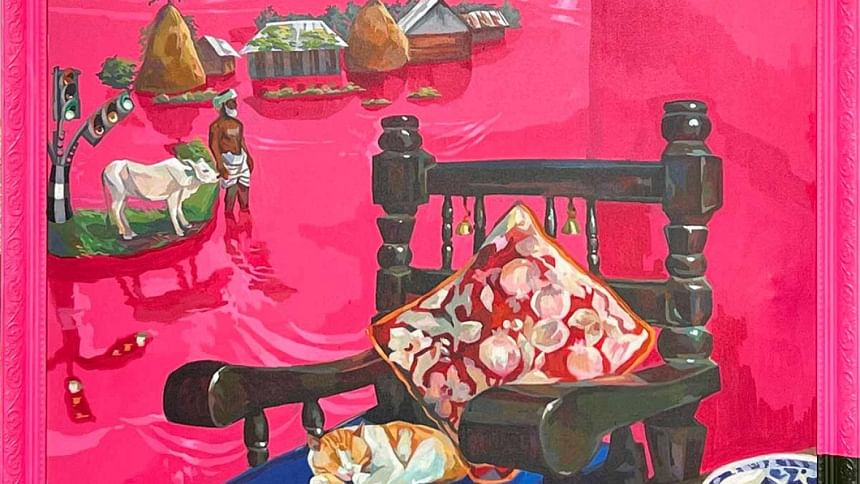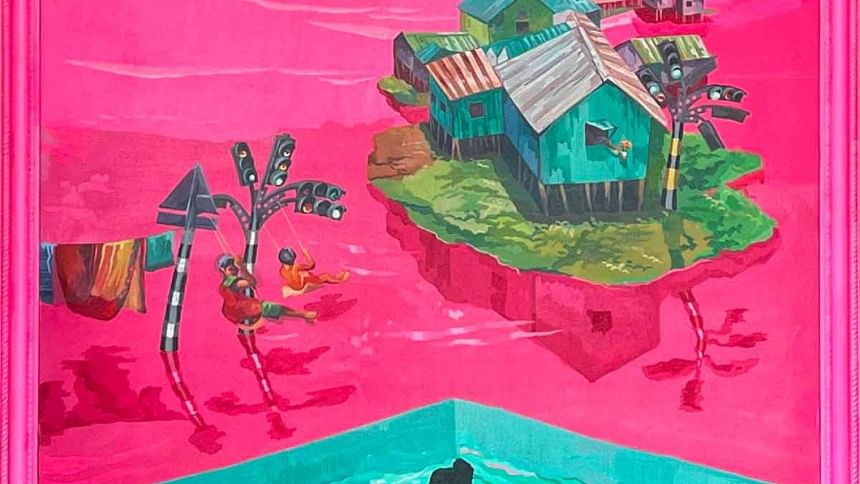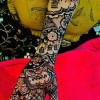Painting the world in pink

Pink is an interesting shade and artist, Antora Mehrukh Azad has made it her signature – an unusual choice that boldly reflects the environmental themes her art explores. Azad's work, with its vivid neon pink hues, is a stark reminder of the rapid environmental changes transforming our world – a topic that resonates deeply with her own experiences of loss and displacement.
So, what prompted her to make this decision?
Azad says, "Neon pink symbolises artificiality. It's a colour that does not occur naturally in water or landscapes, yet it dominates our synthetic environments. It represents the tension between our organic ecosystems and the synthetic world we've built."

This deliberate use of colour challenges viewers to confront the reality of environmental changes. "I want people to feel the unnaturalness of the pink. It's beautiful, but it's also unsettling – just like the changes we're seeing in the world," she says.
Antara Azad's journey into art began early. She credits her parents for nurturing this ambition. "My parents appreciated the arts and supported me however they could. My mother, in particular, was instrumental. She entered my work into competitions and art shows when I was too shy to do it myself."

Her commitment to craft is grounded in rigorous training. She holds both a BFA and MFA in Drawing and Painting from the Faculty of Fine Arts, University of Dhaka. Her formal education helped her refine her technique, but her personal experiences and the world around her have always driven the stories she tells through her art.
Art is deeply tied to the landscapes Azad grew up in. "I've witnessed firsthand how natural spaces have been replaced by urban sprawl. My family also lost our ancestral home to flood. Growing up in Dhaka, one of the most climate-vulnerable megacities, I've seen the impact of climate change at both personal and community levels."
These experiences are central to her work. Her paintings explore themes of environmental degradation, displacement, and the collision between natural and artificial worlds. "It's not just about what I've lost but about the larger picture of what we're collectively losing as a planet," she explains.

Azad hopes her work does more than just provoke thought; she wants it to inspire action. "My paintings are fragments of a larger crisis. I want viewers to connect with them on a personal level and reflect on how their actions impact the environment."
Yet, she acknowledges a difficult truth. "I wonder sometimes – will my art drive change, or will it just be seen as decorative, something to hang on a wall? I hope it's the former, but that depends on how people engage with it."
In a world increasingly disconnected from nature, her paintings are vivid reminders of what's at stake. Whether displayed in a gallery or appreciated in a home, her work carries a clear message: the time to address environmental issues is now.
And like Azad, may we also learn to rethink how we live, build, and interact with our planet.

 For all latest news, follow The Daily Star's Google News channel.
For all latest news, follow The Daily Star's Google News channel. 








Comments